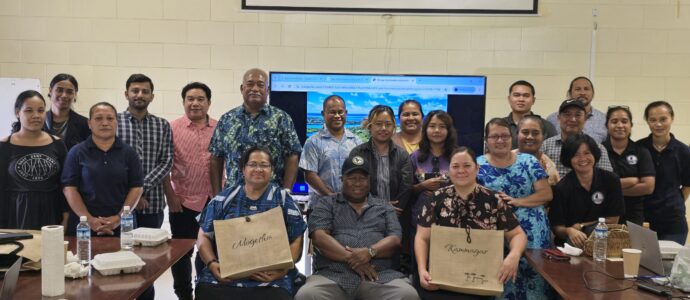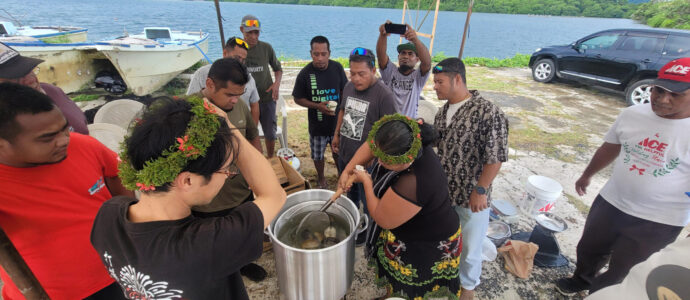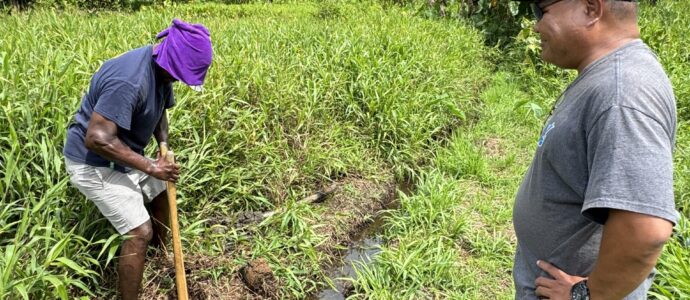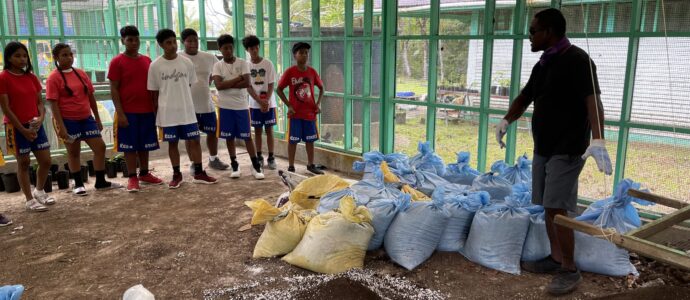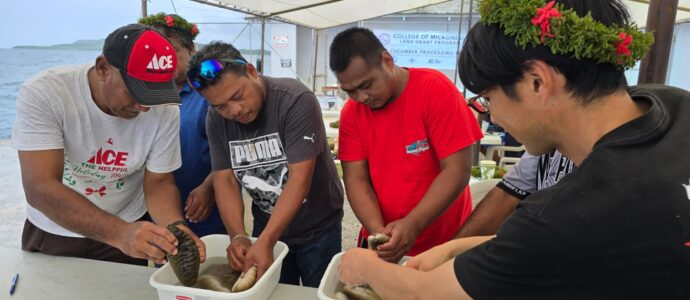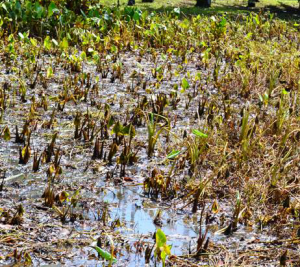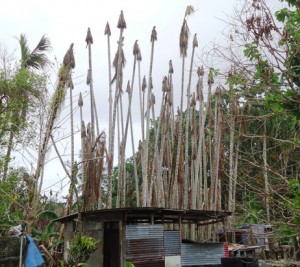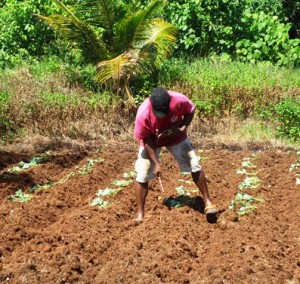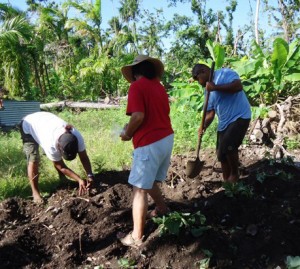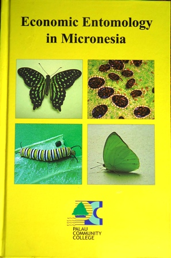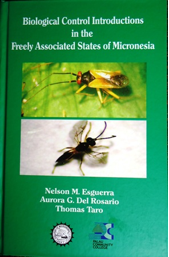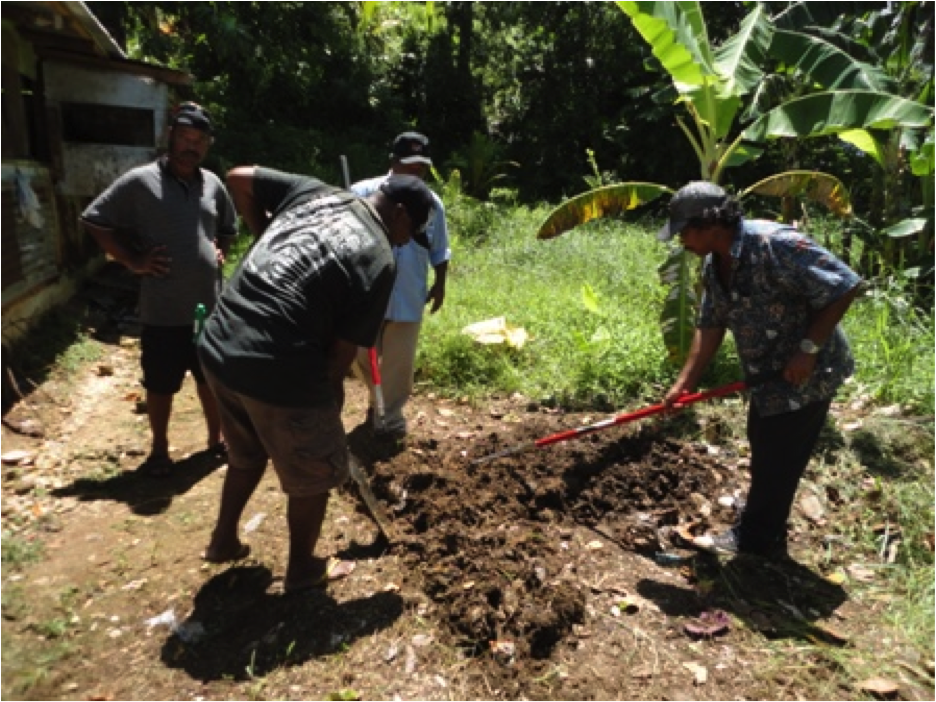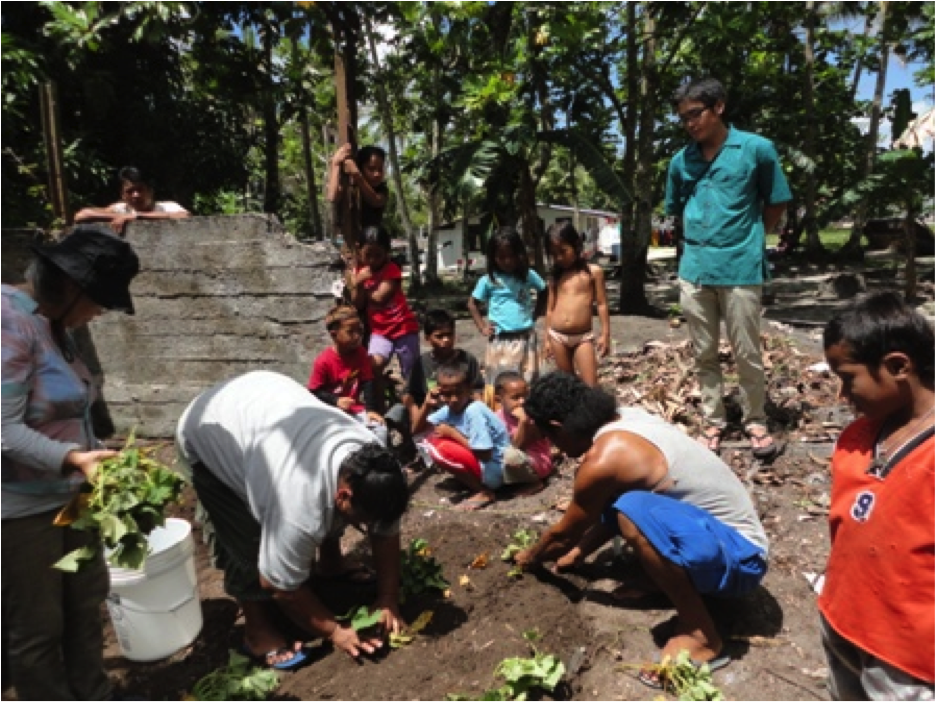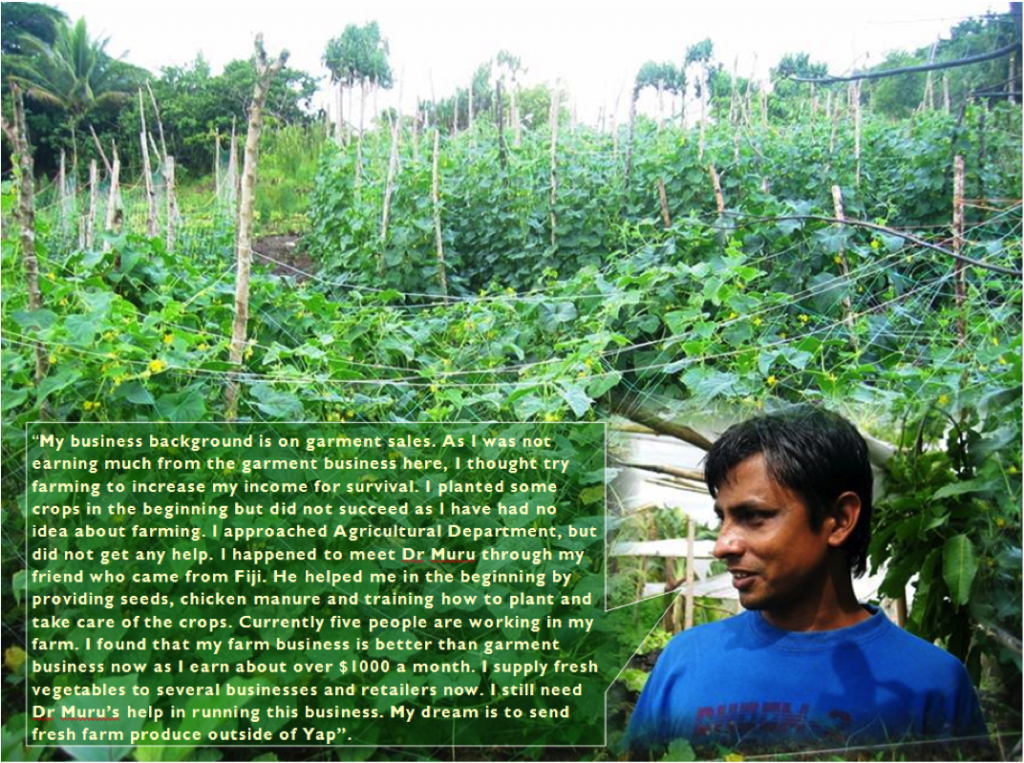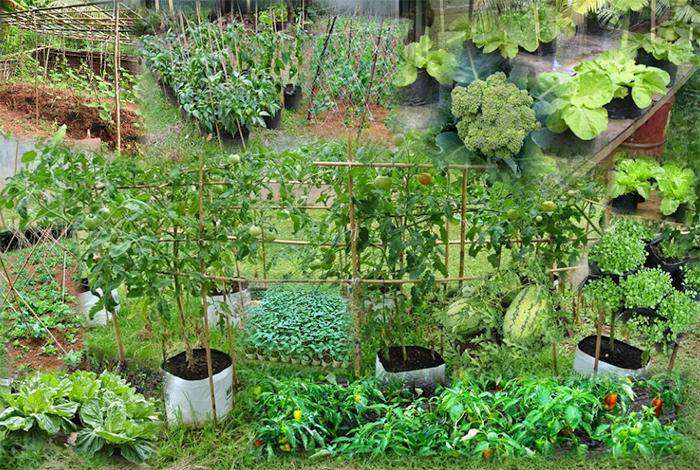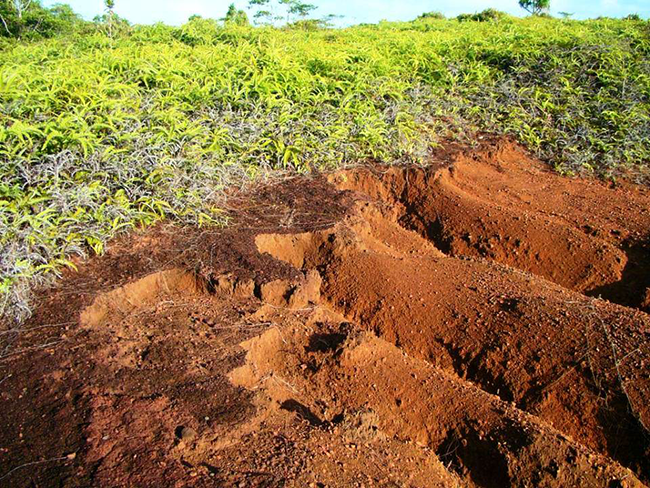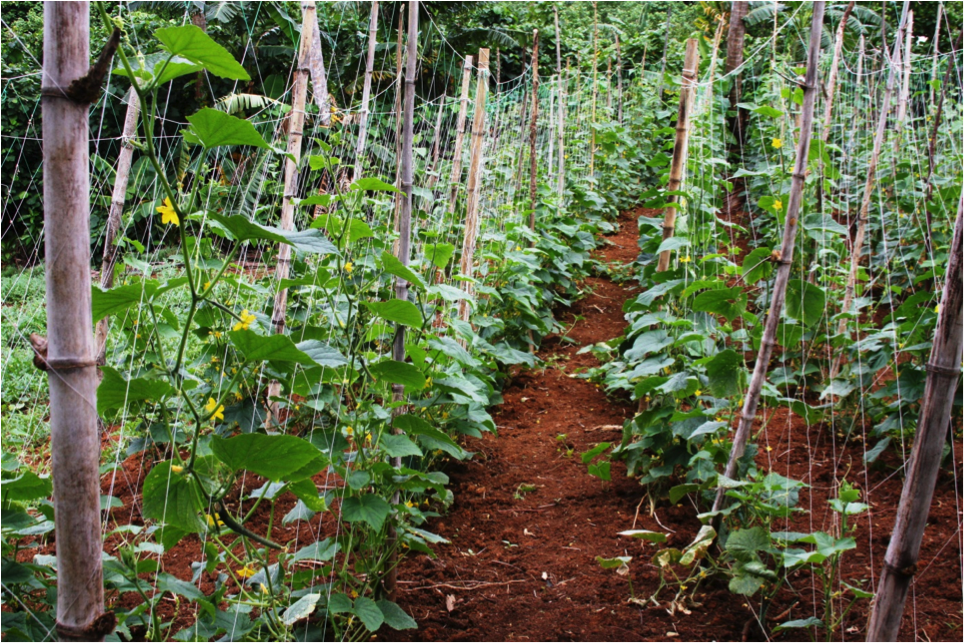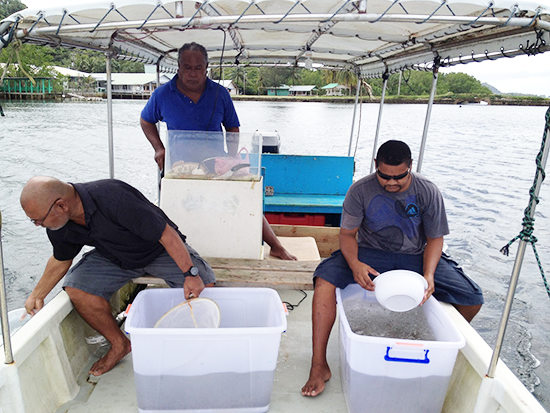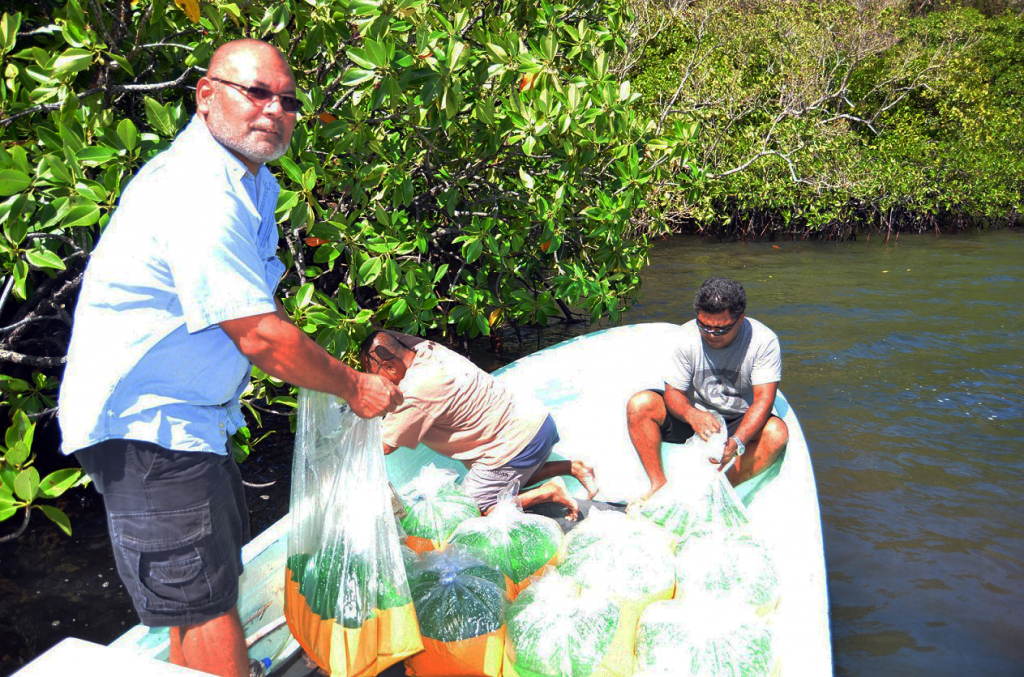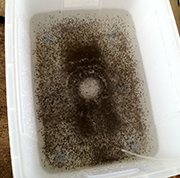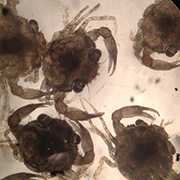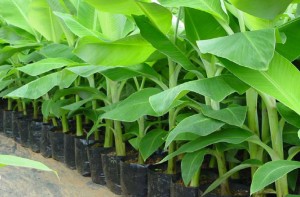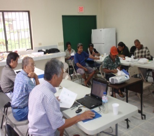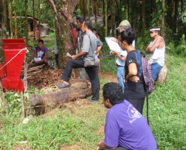NGAREMLENGUI STATE, PALAU. Dr. Aurora G. Del Rosario, Researcher/Extension Specialist, Palau Community College Research and Development Station.
In December 2, 2012, Palau was badly hit by Typhoon “Bopha”. Most severely affected were the states of Ngaraard, Ngiwal, Melekeok and Ngchesar in East Coast of Babeldaob as well as the outer islands of Peleliu, Angaur and Kayangel. Big waves brought the sea water and sand inland into the homes along the shoreline and left a lot of damaged houses, schools, roads, and infrastructures. In some areas, salt water flooded the roads and houses up to 4 to 6 feet at the height of the typhoon. Salt water also inundated taro patches, damaged the mesei resulting in burned taro plants. Even tall betel nut trees were severely affected by the salt water coming inland into the islands. Thus, food supply and food security of the community was endangered. PCC-CRE extended assistance to the affected communities by assisting them in establishing their farms and gardens as part of relief efforts to victims of Typhoon Bopha.
In January, 9 farms in Ulimang, Ngkeklau and Choll in the state of Ngaraard were plowed and planted with sweet potato, cassava and taro. In Melekeok, 14 community farms were also plowed and planted with cassava, taro and sweet potato. In February 5 – 7, 2013, PCC-CRE worked with the Bureau of Agriculture in assisting 81 residents of Peleliu State by plowing backyards, established vegetable gardens and also planted taro and sweet potato. In March 14 – 16, 2013, PCC-CRE Staff also assisted 48 residents of Angaur State and provided planting materials to establish sweet potato, taro and vegetable gardens. Finally, in March 29-31, 2013, PCC-CRE staff went to Kayangel Island to assist 14 farmers in plowing, and planting sweet potato, cassava and taro. Vegetable seeds and compost were also distributed to the farmers. All these efforts were done to ensure food security in the communities in the coming months.

